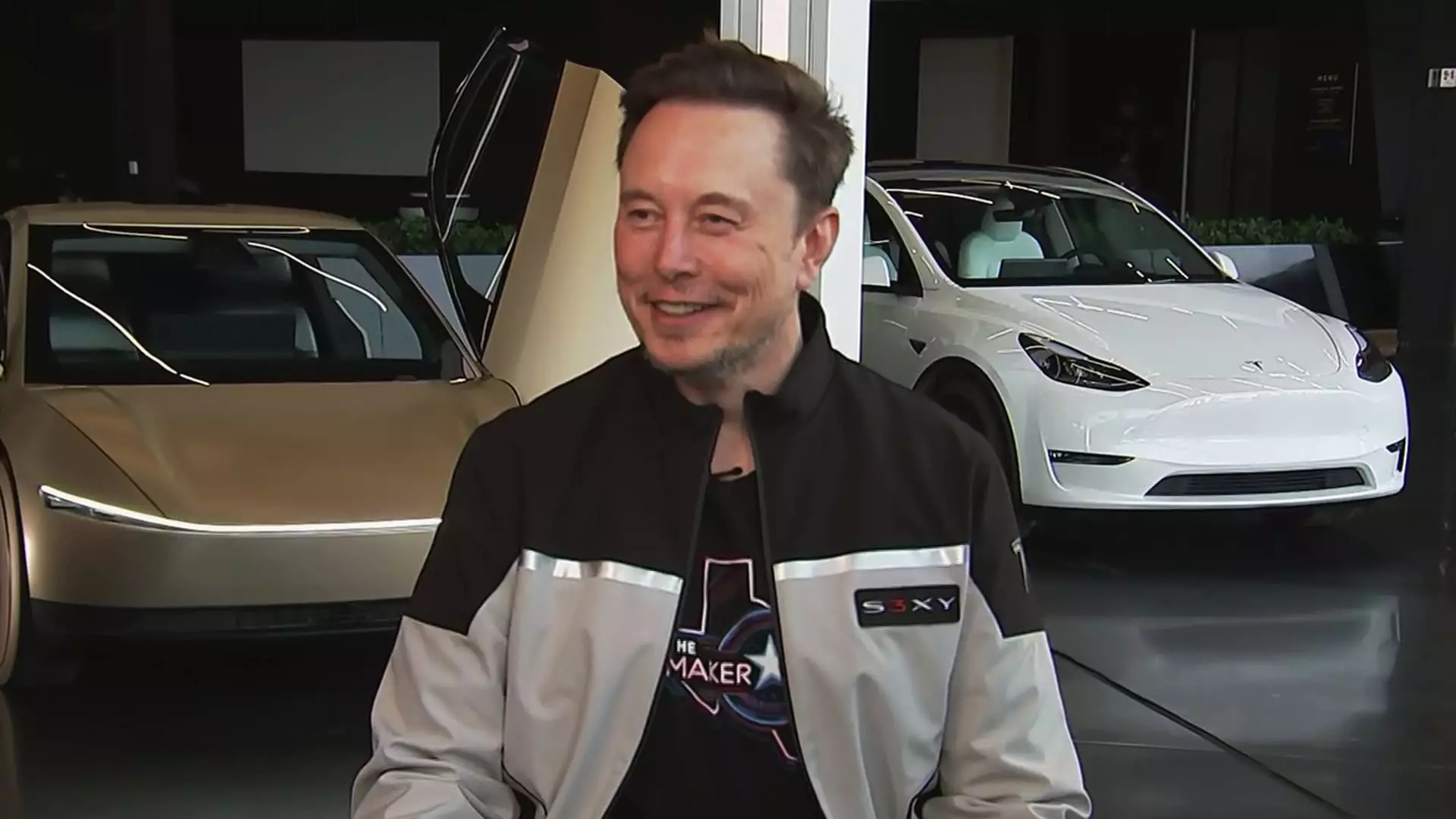Elon Musk’s recent revelations about the semiconductor needs of Tesla and his burgeoning artificial intelligence venture, xAI, reflect a pivotal moment for the tech industry. With an astonishing 200,000 GPUs already in place at the xAI facility in Memphis and plans for a million more, there’s no denying the aggressive expansion marks a transformative era. Yet, amid the excitement about AI’s potential lies a fundamental question — are we merely postponing an unforeseen crisis by our deteriorating dependence on specific chip manufacturers? Musk’s prediction that chip limitations will soon shift to electrical supply concerns underlines a perennial issue in tech: as we sprint forward, are we neglecting to address our environmental and infrastructural responsibilities?
Musk’s laser-focused prioritization of technology advancement raises eyebrows. While he confidently states that chips are currently the linchpin of AI development, what happens when these machines outstrip the very power sources they rely on? The forecasted electricity shortages by mid-2026 could cripple a slew of AI innovations and expose vulnerabilities in a system that many currently view as invincible.
The Environmental Cost of Innovation
The Memphis facility, touted as a high-tech manufacturing hub, operates under a veil of controversy. Local discontent regarding the environmental impacts of xAI’s operations is palpable. Reports indicating possible violations of the Clean Air Act due to the use of natural gas-burning turbines heighten concerns about health repercussions for nearby communities. Air pollution is not merely an abstract statistic; it translates into risks associated with respiratory disease and wider public health implications.
In pursuit of progress, Musk and xAI have historically skated on the edge of ethical responsibility. While the allure of high-tech innovation can blind us to associated costs, it is vital to approach such narratives with a critical eye. Progress achieved at the expense of community health cannot be justified, regardless of how revolutionary the technology may seem. The existential threat we face from climate change demands a more holistic approach to innovation. Must we forever choose between technological advancement and environmental sustainability?
Musk’s Corporate Universe: A Recipe for Overreach?
While the question of whether xAI and Tesla might merge remains open, one can’t ignore the implications of such a corporate marriage on oversight and governance. Musk’s portfolio, sometimes described as the “Muskonomy,” raises alarms about monopolistic tendencies and a concerning blurring of lines between different entities. When companies operate within a closely-knit framework, accountability becomes diluted, risking the well-being of communities and the environment alike.
The suggestion that innovation hinges on a culture of questioning authority brings to light a double-edged sword. While Musk rightly champions the spirit of rebellion against conventional wisdom, it is this very mindset that must also extend to a responsible evaluation of the consequences of technological growth. Disruption and questioning are vital, but they should not absolve stakeholders from the responsibility of assessing public health and environmental impacts.
The Dangers of Blind Optimism
Musk’s unwavering confidence in America’s ability to weather the storm of competition, particularly regarding China’s investment in power generation, is a hallmark of his strategic vision. However, the underlying assumption that mere questioning will catalyze breakthroughs is dangerously simplistic. If we only push for technological achievements without considering their broader implications, we set ourselves on a precarious pedestal.
In Musk’s self-proclaimed race toward innovation, the stark reality is that every leap forward has its strings attached — societal and environmental costs that cannot simply be dismissed. The technological landscape must reflect a marriage of ambition and conscience, not a blind sprint toward a future that perpetuates existing inequities.
As we witness the rapid evolution of AI under Musk’s command, it’s a moment for vigilance, not just enthusiasm. The intersection of chips, energy supply, and ethical considerations will dictate the future of this incredible frontier. Without responsible stewardship, the innovative utopia Musk envisions may morph into a dystopian reality characterized by shortages, health crises, and environmental degradation. The time has come not to merely applaud technological advancements but to hold their architects accountable.

